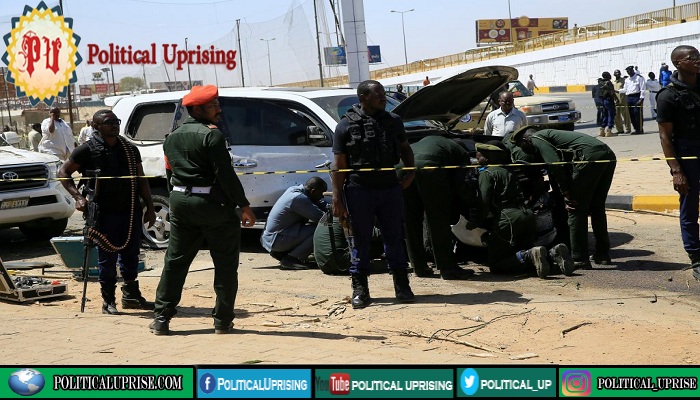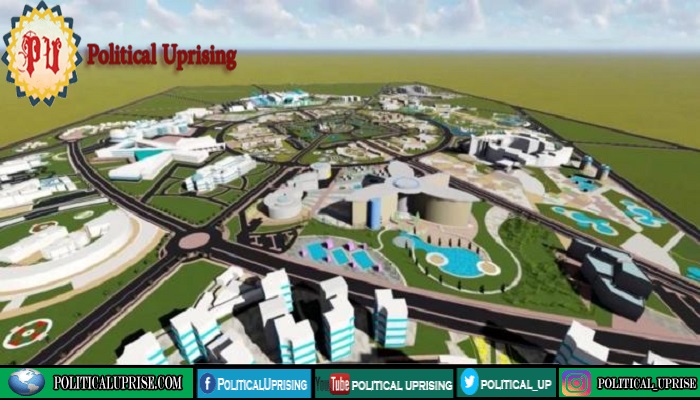Crackdown in Sudan starts after Prime minister Abdalla Hamdok survives in assassination attempt yesterday.
Attack against Abdallah Hamdok in Khartoum underlines fragility of transition to civilian rule, analysts say.
Sudanese authorities have arrested a number of suspects in connection with what the government called an assassination attempt against Prime Minister Abdalla Hamdok, in an incident that underlines the fragility of the country’s transition to civilian rule.
Officials and state media said on Monday Hamdok, 64, survived unharmed after a bomb and gun attack targeted his motorcade in the capital, Khartoum.
In a Twitter post, Hamdok said he was in “good shape” and that what had happened would be “an additional push to the wheel of change in Sudan“, where he heads a transitional government following the military overthrow in April last year of longtime President Omar al-Bashir in the face of months-long pro-democracy protests.
Rebel chief,Sudan President agrees to form unity government
Khartoum Governor Ahmed Abdoon said that a number of people suspected of involvement in the attack had been attacked, without providing additional details.
The country’s top prosecutor, Taj al-Ser Ali al-Hebr, said in a statement that prosecutors have embarked on their investigation into the “professionally plotted” attack.
Meanwhile, Sudan’s National Security and Defence Council said it was seeking the support of Sudan’s “friends” in investigating who was behind the assassination attempt.
Following a meeting on Monday, Interior Minister al-Traifi Daffallah Idriss said in a statement the council decided to “request the help of Sudan’s friends to uncover those involved in the attack and bringing them to justice”, the Sudan Tribune reported.
The blast near Hamdok’s motorcade struck at around 9am local time (10:00 GST) close to Kober bridge while the prime minister was heading to his office, Ali Bakhit, his office director, said in a Facebook post.
A security officer was lightly wounded.
“The explosion was very loud and the glass from all four floors broke,” witness said.
“I went out to see and found two cars badly damaged and another which I assumed was the prime minister’s car driving away with a security convoy,” he said.
After Monday’s attack, the Sudanese Professionals Association (SPA), which spearheaded the anti-al-Bashir movement, called for further rallies to display unity and support for civilian rule.
A statement by the Forces for the Declaration of Freedom and Change (FFC) alliance also called on people to take to the streets to “show our unity and cohesion…and protect the transitional authority”.
Sudan, rebel groups agree on prosecution of those wanted by International Criminal Court
After the attack, dozens of demonstrators in Khartoum added their voice to a public show of support for Hamdok, chanting “with our blood and soul, we will sacrifice ourselves for you”.
“This is our homeland and Hamdok is our leader,” they said.
Despite the support, Hamdok will likely encounter challenges to his “wheel of change”.
His appointment as prime minister came on the back of a power-sharing deal between the generals who overthrew al-Bashir and the leaders of the months-long protest movement.
After months of fraught on-and-off negotiations, the two sides in August signed a three-year power-sharing deal leading to the formation of an 11-member sovereign council and the appointment of a technocratic, transitional government under Hamdok, a veteran economist and former United Nations official.
Since taking office, Hamdok has pledged to tackle pressing social and economic challenges while also attempting to forge peace with the country’s various rebel groups.
Jonas Horner, a senior analyst on Sudan with International Crisis Group, said Monday’s attack “will remind both Sudanese and the country’s international backers of the role of the military” during the transitional period.
Netanyahu-Burhan meeting exposes divides in Sudan
“It also is likely to herald a greater securitisation of the transition but will simultaneously serve to rally Sudanese around Hamdok, the face of Sudan’s post-Bashir era,” he said.
Looking ahead, Horner said, the core challenges to delivering on the goals of the uprising “remain as they were” when al-Bashir was overthrown on April 11, 2019: reform of the security sector and the economy.
“Hamdok and the transitional government could do much more to advance the country’s transition,” he added, noting that legal, economic and welfare reforms were “all badly needed to ensure ordinary Sudanese see the dividends of the protests”.
Crackdown in Sudan after Abdalla Hamdok survives in assassination attempt.



